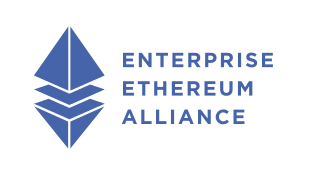By Baseline Outreach Team
Recently, the Baseline Core Developer Community announced on the Baseline Show the completion of a major milestone for the third Baseline Reference Implementation (BRI-3), which focuses on simplifying the implementation and use of the Baseline Protocol.
The Baseline Protocol is an open-source standard that combines zero-knowledge cryptography, self-sovereign identity, and blockchain technology to solve digital business process automation across trust barriers. The Baseline Protocol particularly focuses on solving multi-party coordination problems that require zero-trust between enterprises.
The Baseline Protocol is an open-source project managed as an Enterprise Ethereum Alliance Community Project and technical specification through OASIS, and all are welcome to join its community. The Baseline Protocol standard is made available on GitHub, where it is being reviewed and maintained as it undergoes the ratification process to make it an official EEA Communities Project and OASIS standard. It aims to be the guiding framework for businesses to build software that not only ensures greater security when executing normal digital business processes but also realizes the benefits of privacy-preserving, zero-trust ecosystem – verifiably correct and privacy-preserving real-time data synchronization and business process execution between multiple parties.
It is an exciting testament to the standard’s capabilities that companies have begun to develop standard-compliant commercial implementations. And in early 2022, the Baseline Protocol Technical Steering Committee (TSC) identified a simple and easy-to-use reference implementation as a top priority to progress the standard ratification and adoption. Such a minimal-complexity reference implementation is needed for developers to pilot applications with this novel pattern. BRI-3 as this minimal-complexity implementation is called will make the use of privacy-preserving zero-knowledge cryptography in enterprises easy for developers and allow them to gain a deeper understanding of how to build any type of privacy-preserving zero-trust enterprise use case such as international supply chain operations, mobility, telecommunications, and insurance. BRI-3 will lay the groundwork for SDKs and additional tooling that will enable more developers to implement zero-trust solutions. BRI-3 is open source, vendor agnostic, and can be used by any enterprise to develop their Baseline Protocol implementation.
The BRI-3 work is being funded through the Baseline Protocol 2022 Grants Program, which received donations totaling $100,000 from the Ethereum Foundation and ConsenSys Mesh as part of these organizations’ larger efforts to advance distributed ledger technologies. The work officially kicked off in August 2022 and has a team of six Baseline Core Developers working on it. All work around the open source effort, grant scope, milestones, and resources can all be found on the Baseline Protocol Grant GitHub.
To date, BRI-3 has completed 2 of 5 milestones and is expected to conclude in the first half of 2023. Based on peer-reviewed pull requests – the application architecture, server framework, storage layer, and CRUD API functionality for BRI-3 have been developed. For technically curious outsiders looking in, the team has developed innovative solutions regarding state management between counterparties under zero knowledge with merkle proofs, and privacy-preserving authentication and authorization of BPI participants using W3C DIDs. For access to more materials regarding the thought and design that went behind this implementation, please join the Baseline Core Devs Community.
To demonstrate BRI-3’s capabilities for critical enterprise use cases, the Research Workgroup within the Baseline Protocol Outreach team is outlining an international supply chain use case. The goal is to provide a publicly accessible and operational demo application of a trustless supply chain that will increase enterprise adoption by demonstrating enterprise-critical capabilities in an easy-to-use manner in a complex multi-party setting.
Finally, with the availability of BRI-3 and other reference implementations, the community will be able to demonstrate reference implementation interoperability for the first time in 2023; another major milestone for the standard and the community.
Stay tuned for future news and demo announcements on our website or social channels.
Resources:

